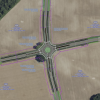Accurate agendas a cornerstone of democratic process
A recent opinion from the Attorney General’s Office was critical of meeting agendas posted by the Town Dewey Beach. The opinion, detailing violations of the state’s Freedom of Information Act, cited numerous meeting agendas that failed to provide enough detail about what town officials would discuss for the public to decide whether to attend the meeting.
This opinion has drawn stiff backlash from town officials across the state, who said they have long based their agendas on past opinions. Some attorneys went so far as to call the Dewey Beach opinion a sea change in what agendas must include.
The Attorney General’s Office has consistently denied any change in its view of the Freedom of Information Act. At a recent meeting with Sussex County Association of Towns, a deputy attorney general insisted the rules have not changed.
The issue is simple: Meeting agendas must provide enough information so citizens can decide if a matter of significance to them will be discussed or decided.
This issue surfaced again when Rehoboth Beach commissioners spent two hours debating establishment of a town park – a discussion item on the posted agenda that apparently drew a large audience.
After the long debate, some commissioners called for a vote; the town’s attorney pointed out the agenda offered no indication a vote would take place.
No vote was taken. Instead, a vote will be on the agenda at a special meeting to be held before the commissioners’ next scheduled workshop meeting.
While some commissioners are grumbling about the delay, two weeks is a small price to pay to allow the public to have its say before a vote is taken.
Next time the debate might be more far-reaching than a park – say, reassessing all the properties in Rehoboth Beach.
The Freedom of Information Act has a simple goal: Residents are entitled to know what their government is doing and what their government is voting on.
As boring as it sounds, public agendas are a cornerstone of a successful democracy. If the public doesn’t know what its government is doing, no one can participate in the democratic process.













































